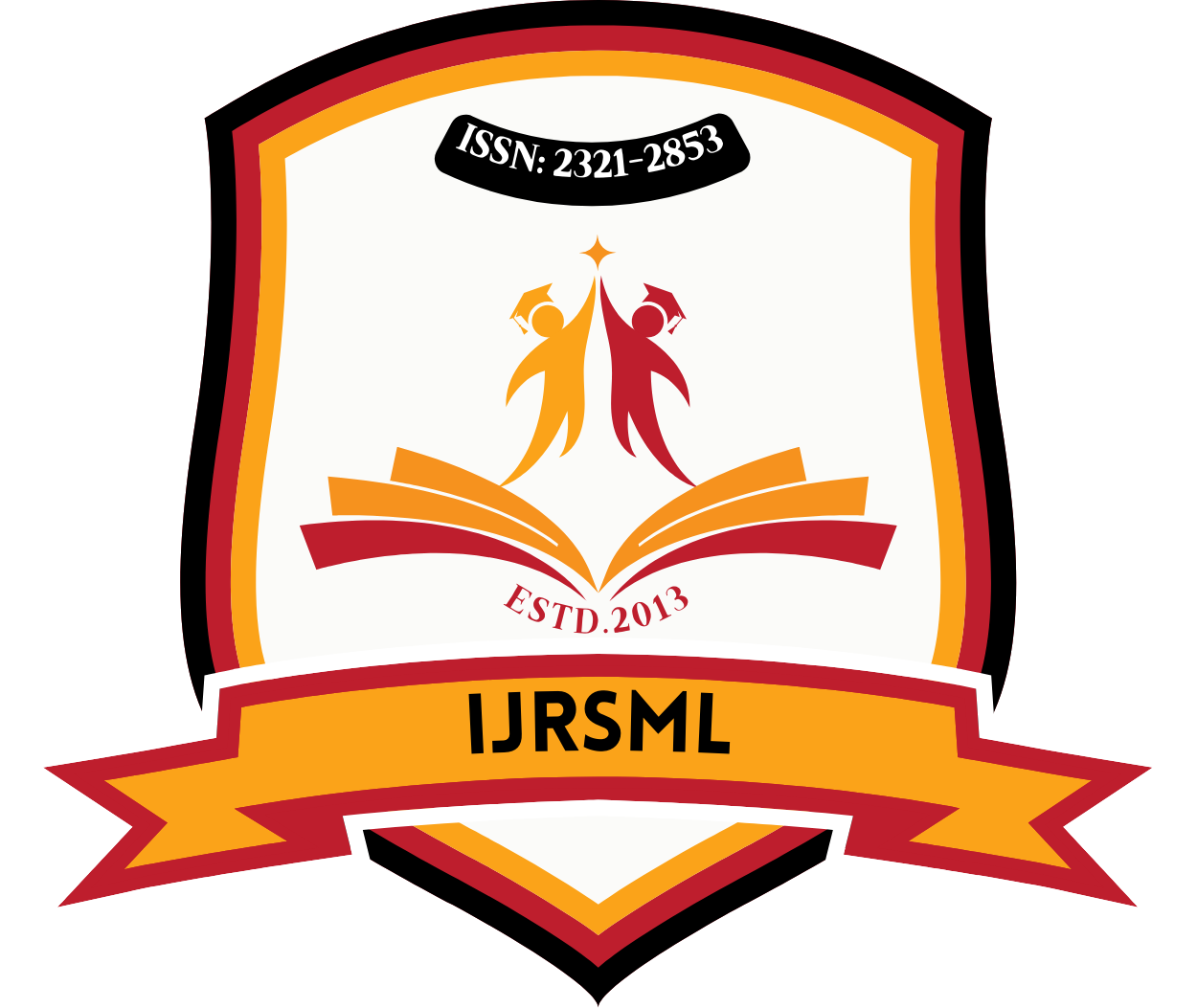![]()
Published Paper PDF: Download PDF
DOI: https://doi.org/10.63345/ijrsml.v13.i8.2
Dr. Deependra Rastogi
IILM University
Greater Noida, Uttar Pradesh 201306, India
Abstract
Massive Open Online Courses (MOOCs) have dramatically expanded access to higher education, enabling learners worldwide to engage with high‐quality content regardless of geographic or socioeconomic barriers. Despite this promise, the predominance of English‐medium instruction often poses substantial comprehension challenges for non‐native speakers, undermining both engagement and learning efficacy. Regional language subtitling (RLS) has emerged as a scalable pedagogical intervention designed to bridge these linguistic gaps by providing subtitles in learners’ native tongues alongside the original English audio. This manuscript reports on a large‐scale, randomized clinical trial involving 600 participants enrolled in an “Introduction to Algorithms” MOOC. Participants were evenly randomized into RLS and control cohorts, completing a series of module‐end comprehension quizzes, a proctored final exam, and a retention assessment four weeks post‐course. In addition, we measured cognitive load via the NASA‐TLX instrument, intrinsic motivation through the Intrinsic Motivation Inventory, and engagement metrics including video watch time and forum participation. Quantitative analyses reveal that the subtitled group outperformed controls on comprehension quizzes by 12.3% (p < 0.001), final exams by 8.7% (p = 0.003), and retention tests by 10.1% (p < 0.001). Effect sizes ranged from medium to large (Cohen’s d = 0.79–1.41). Survey data indicate that RLS learners experienced a 24% reduction in perceived cognitive load and a 15% increase in intrinsic motivation compared to the control group. Engagement metrics further demonstrate that subtitles correlate with a 13% increase in total video watch time and a 52% increase in forum participation. Qualitative feedback highlights improved confidence in tackling complex topics, deeper conceptual connections facilitated by mother‐tongue translation, and greater course completion satisfaction. These findings provide robust, empirical support for integrating high‐quality regional subtitles into MOOC platforms, underscoring RLS as a cost‐effective strategy to democratize digital education, reduce language‐based inequities, and foster sustainable learner engagement across diverse linguistic communities.
Keywords
Regional language subtitling; MOOCs; learning outcomes; comprehension; retention
References
- https://www.researchgate.net/publication/316702745/figure/fig3/AS:746587823288320@1555011816156/Classical-MOOC-system-flow-diagram.png
- https://www.researchgate.net/publication/224238616/figure/fig2/AS:669956991614995@1536741602943/A-flow-diagram-of-learning-including-development-of-creativity.png
- Alraimi, K. M., Zo, H., & Ciganek, A. P. (2015). Understanding the MOOCs phenomenon: Structure, motivations, and challenges of online learning. Computers & Education, 80, 28–45.
- Anderson, P. H., Lynch, T., & McLean, S. (2015). Bilingual subtitling and vocabulary acquisition in online video tutorials. Language Learning & Technology, 19(3), 112–130.
- Bartolomé, A., & Gallego, M. (2018). The impact of subtitles on comprehension in foreign language MOOCs. International Review of Research in Open and Distributed Learning, 19(1), 65–82.
- Deci, E. L., & Ryan, R. M. (1985). Intrinsic motivation and self‐determination in human behavior. Plenum.
- DeWaard, I., Abajian, S., Gallagher, M. S., Hogue, R., Keskin, N. O., & Littenberg‐Tidwell, J. (2011). Using the futurelearn MOOC platform to support learning in resource‑constrained contexts. Journal of Learning Analytics, 2(1), 7–25.
- Ho, A., Reich, J., Nesterko, S. O., Seaton, D. T., Mullaney, T., Waldo, J., & Chuang, I. (2014). HarvardX and MITx: Two years of open online courses fall 2012–summer 2014. HarvardX Working Paper, 10–12.
- Kizilcec, R. F., Pérez‑Silva, C., & Reinecke, K. (2017). How do learners acquire and sustain motivation in MOOCs? A model of learner engagement. Proceedings of the Tenth International Conference on Learning Analytics & Knowledge, 164–168.
- Kruger, J.-L., & Steyn, H. (2018). The effect of L1 subtitles on L2 vocabulary acquisition and listening comprehension. System, 72, 97–108.
- Laurillard, D. (2016). The educational problem that MOOCs could solve: Professional development for teachers of disadvantaged students. Research in Learning Technology, 24, 29369.
- Mayer, R. E. (2005). Cognitive theory of multimedia learning. In R. E. Mayer (Ed.), The Cambridge Handbook of Multimedia Learning (pp. 31–48). Cambridge University Press.
- Neuman, T., & Koskinen, P. (1992). Captioned television as comprehensible input: Effects of incidental word learning from context for language‐minority students. Reading Research Quarterly, 27(1), 94–106.
- Paivio, A. (1991). Dual coding theory: Retrospect and current status. Canadian Journal of Psychology, 45(3), 255–287.
- Plass, J. L., Chun, D. M., Mayer, R. E., & Leutner, D. (1998). Supporting visual and verbal learning preferences in a second‐language multimedia learning environment. Journal of Educational Psychology, 90(1), 25–36.
- Rodríguez, O. C. (2012). MOOCs and the funnel of participation. International Review of Research in Open and Distributed Learning, 13(3), 145–159.
- Vanderplank, R. (2010). Déjà vu? A decade of L2 listening research and practice (2000–2010). Language Teaching, 43(1), 1–37.
- Xu, B., & Xu, Y. (2019). Strategies for enhancing comprehension in non‐native speaker MOOCs: A review. Educational Technology Research and Development, 67(4), 817–834.
- Yang, D., Sinha, T., Adamson, D., & Rosé, C. P. (2013). Turn on, tune in, drop out: Anticipating student dropouts in Massive Open Online Courses. Proceedings of the 2013 NIPS Data‐Driven Education Workshop, 11–13.
- You, J. W. (2016). Identifying significant indicators using LMS data to predict course achievement in online learning. British Journal of Educational Technology, 47(4), 592–604.
- Zhang, D., Zhou, L., Briggs, R. O., & Nunamaker, J. F. (2006). Instructional video in e‐learning: Assessing the impact of interactive video on learning effectiveness. Information & Management, 43(1), 15–27.
- Zhao, Y., & Zhu, Q. (2020). Effects of subtitles on learning performance and cognitive load in MOOCs for Chinese learners. Journal of Educational Computing Research, 57(7), 1774–1796.
